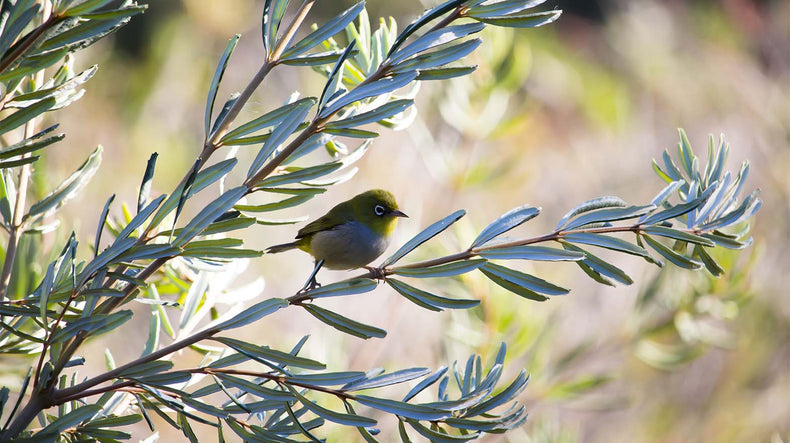Saving the Songbirds: Why all our olive oils are hand-harvested
by The Sous Chef Team

Olive harvesting is a crucial industry in many parts of the world, and for centuries, people have been using a variety of methods to pick the fruit from the trees. But in recent years, it has become clear that some of these methods are having a devastating impact on local bird populations.
What birds nest in olive trees?
Several bird species are known to nest in olive trees, including the European Robin, Blackcap, Chiffchaff, and Sardinian Warbler. These birds are migratory, traveling from their breeding grounds in Europe and North Africa to wintering areas in sub-Saharan Africa. They are small, agile birds with slender beaks and strong legs. They are known for their melodic songs and striking appearances, with bright plumage in shades of red, brown, and black. These birds play an important role in the local ecosystems, helping to control insect populations and spreading seeds throughout the olive groves.
The pitfalls of night time harvesting
Night time harvesting has become increasingly popular in recent years, as it allows farmers to avoid the heat of the day and work more efficiently. However, this method can be particularly harmful to birds, as they are often asleep in their nests at night and may not have time to escape before the harvesting begins. This can result in the birds being injured or killed by the mechanical shakers.
These machines are attached to the tree trunks and vibrate violently, shaking the olives loose from the branches. It's a quick and efficient way to harvest large quantities of olives, but it comes with a heavy cost. Because as the trees are shaken, so too are the nests of the birds that make their homes in the branches. The vibrations are so strong that they can knock eggs from nests or cause baby birds to fall to their deaths.
Another method that has been causing concern is vacuum harvesting. This involves the use of powerful suction devices to remove the olives from the trees. While this method is very efficient, it can be particularly harmful to birds, as they can be sucked into the machines along with the olives.
So why do so many brands do it?
For years, the focus has been on maximizing efficiency and profitability, with little thought given to the impact that these methods are having on the natural world. But as awareness grows, more and more farmers are beginning to take steps to protect the birds that call their olive groves home.
The solution
The solution is twofold. First, producers need to harvest during daylight hours so that the birds can notice the disturbance and move elsewhere whilst the harvesting happens. After which they can return to their nests and habitats. Whereas harvesting at night whilst they are sleeping doesn't give them this opportunity.
Secondly, the use of large machinery is to be avoided as to not damage the nests and habitats of the birds. This is swapped in favour of hand-harvesting. And finally, the harvest should be carefully timed to avoid the nesting season which begins in early March.
Bird-friendly Olive Oil Brands
All of our brands! We only work with producers who use more artisanal hand harvesting methods, so the songbirds can rest happily in their olive trees and keep on singing.
These methods are a reminder that the way we harvest our food can have a significant impact on the natural world around us. While we must balance the needs of agriculture with the preservation of wildlife, it is important to remember that we all have a role to play in protecting our environment and the creatures that call it home. By working together, farmers, conservationists, and consumers can find ways to ensure that our food is produced in a sustainable and responsible way that benefits us all.
Shop our full range of extra-virgin olive oil (all songbird friendly) or read our guide to how to choose the right olive oil.

About the author
The Sous Chef team spends all day, every day hunting out the most exciting flavours, trends and recipes from across the world.
Every single team member tastes ingredients weekly, and cooks with the most up-to-date and classic cooking tools regularly. We're experts in ingredients and cookware from around the world.
We are constantly tasting new products, trying new recipes, and speaking to expert producers. For recipes and inspiration from the Sous Chef team, sign up for emails here.


